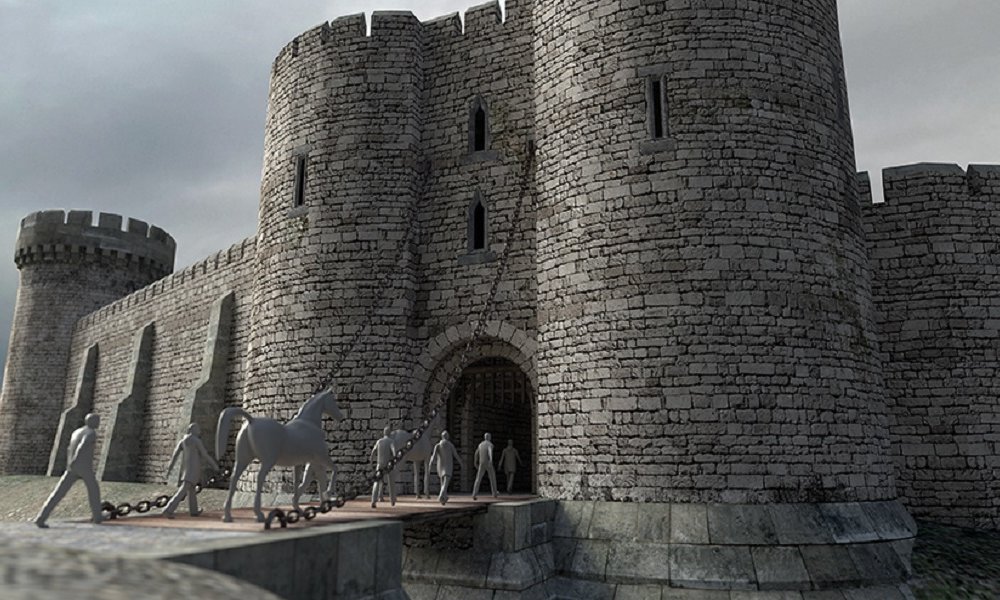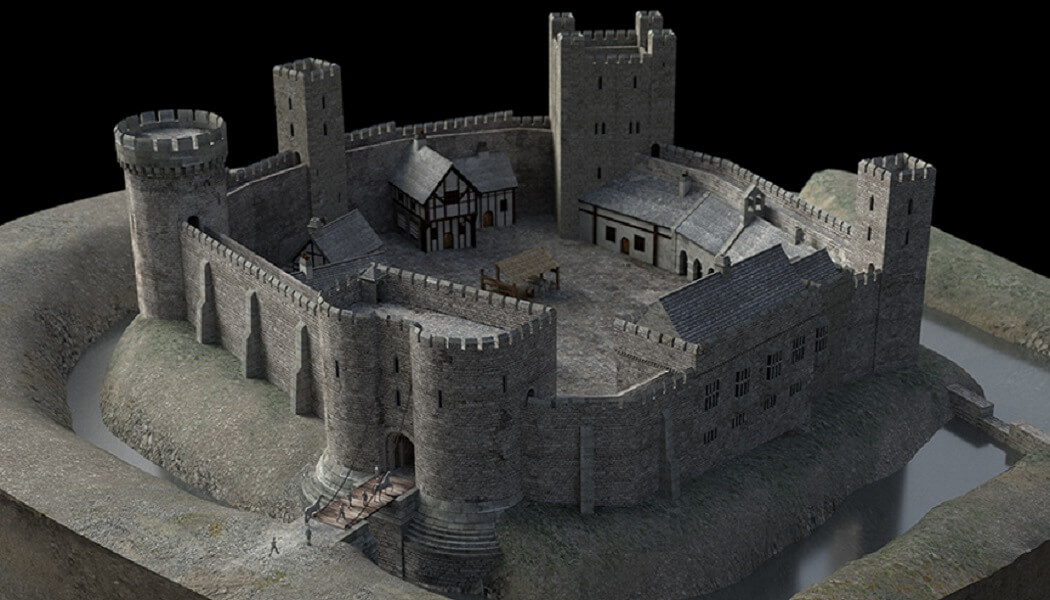The project was originally undertaken as part of the university’s Festival of the Mind, but following the exhibits popularity it was deemed worthy of a longer stay.
Professor John Moreland, who led the Department of Archaeology research, says the exhibition ”demonstrates the power of augmented reality to make the past accessible,” and went on to say he and colleagues “believe that it could play a major part in displaying the rich history of the site uncovered in the recent excavations by Wessex Archaeology.”

The augmented reality experience, called Experience Castlegate, was developed as part of an AHRC-funded project led by Professor Dawn Hadley, and saw contributions from Sheffield-based creative agency Human, the University’s Department of Archaeology, School of Architecture and Department of Computer Science.
Carolyn Butterworth, Senior University Teacher in the University’s School of Architecture, said: “Through bringing the medieval castle to life in its modern context, this augmented reality project is incredibly useful as a tool to engage people in the past, present and possible futures for this fascinating part of the city.”
Sheffield’s lost castle
Sheffield Castle is said to have been one of the most powerful in medieval northern England, before it was almost completely destroyed following an act of Parliament at the end of the English Civil War in 1646.
Having been home to some of Yorkshire’s powerful families of the day – including the de Furnivals, Nevils, Shrewsburys and Howards – the castle was also the location at which Mary Queen of Scots was held prisoner between 1570 and 1584.
Abi Kay, General Manager of the National Videogame Museum, which recently opened in Sheffield after a spell in Nottingham, said: “We always welcome opportunities to celebrate the brilliant work going on in Castlegate, and we can’t think of a better way to do this than through bringing together the area’s rich history with the brilliant videogame technologies the National Videogame Museum exists to share.”
The exhibition is now open to the public and will remain on show throughout the summer.










